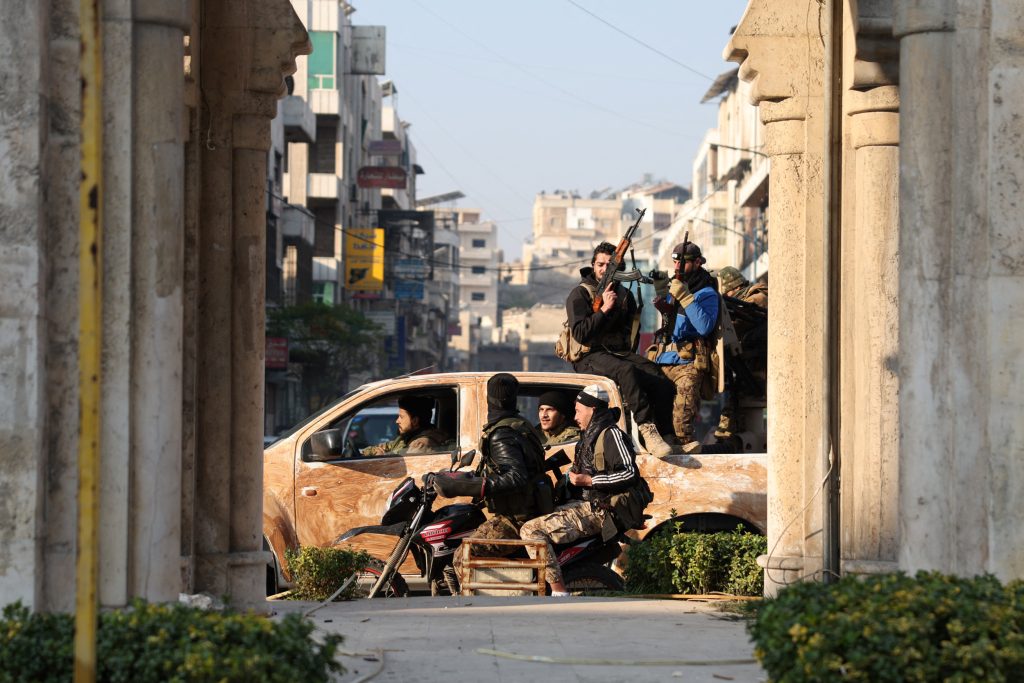The evolving situation in Syria, marked by significant rebel advances, has reportedly prompted Iran to commence a withdrawal of its troops from the war-torn nation. This strategic shift comes as Syrian insurgents continue to gain ground, capturing key cities like Hama and Aleppo, thereby posing a serious threat to the stability of President Bashar al-Assad’s regime. The Iranian withdrawal, as reported by The New York Times, involves the evacuation of commanders and personnel from the elite Islamic Revolutionary Guard Corps Quds Force, along with diplomatic staff from the Iranian Embassy in Damascus. This retreat signals a potential recalibration of Iran’s involvement in the Syrian conflict, moving away from direct military support. The decision appears to stem from a growing realization within Iranian circles that maintaining an advisory and support role becomes untenable when the Syrian army itself falters in its resolve to fight. This evolving dynamic could significantly reshape the power balance in the Syrian conflict, potentially impacting the future of Assad’s regime and the broader regional stability.
The reported Iranian withdrawal underlines a growing sense of pragmatism within Tehran regarding its Syrian strategy. The assessment, as voiced by Iranian analyst Mehdi Rahmati, points towards the futility of sustained military operations in a context where the Syrian army itself exhibits a wavering commitment. This realization reflects a shift from earlier approaches where Iran invested heavily in bolstering Assad’s forces, providing both military expertise and personnel. The evolving situation on the ground, with rebels gaining significant territorial control, has seemingly compelled Iran to reassess its approach. The withdrawal of troops and diplomatic personnel suggests a move towards damage control, prioritizing the safety of its own personnel amidst the escalating conflict. This strategic shift could potentially open a new chapter in the Syrian conflict, impacting the trajectory of the war and the future of the Assad regime.
The contrasting narratives surrounding Iran’s actions in Syria highlight the complexities and fluidity of the situation. While reports indicate a withdrawal of troops and personnel, earlier statements from Iranian officials suggested a commitment to increasing military support for Assad. This apparent contradiction could be attributed to several factors, including the rapidly evolving ground realities, internal debates within the Iranian leadership, or even deliberate efforts to disseminate conflicting information to obscure their true intentions. The reported dispatch of additional military equipment, coupled with plans to increase military advisors, seemingly clashes with the withdrawal narrative. This discrepancy could potentially represent a nuanced strategy, where Iran recalibrates its involvement by prioritizing material support over direct military engagement. Alternatively, it could reflect a state of internal disagreement within Iran’s power structure regarding the optimal approach to the Syrian crisis.
The evolving situation in Syria has far-reaching implications for regional stability and international relations. The potential collapse of the Assad regime, hastened by the rebel advances and the reported Iranian withdrawal, could create a vacuum of power, further destabilizing an already volatile region. This power vacuum could be exploited by various actors, including extremist groups like ISIS, potentially leading to a resurgence of their influence. Moreover, the changing dynamics in Syria could significantly impact the delicate balance of power between regional rivals like Iran and Saudi Arabia, who have been supporting opposing sides in the conflict. The international community faces a complex challenge in navigating this evolving landscape, seeking solutions that prevent further escalation of the conflict and address the humanitarian crisis unfolding in Syria.
The conflicting reports regarding Iran’s military posture in Syria underscore the importance of cautious analysis and interpretation. The fog of war often obscures the true nature of events, and conflicting information can emerge from various sources, each with its own agenda and perspective. It’s crucial to consider the reliability and motivations of the sources when assessing the veracity of information, especially in a complex conflict zone like Syria. Furthermore, the rapidly evolving nature of the situation demands constant monitoring and reassessment of information. What may be accurate at one point in time can quickly become outdated as events unfold. Therefore, a prudent approach involves critical evaluation of information from multiple sources, combined with an understanding of the broader geopolitical context and the interests of the involved parties.
The developments in Syria serve as a stark reminder of the unpredictable nature of geopolitical events and the complex interplay of regional and international interests. The reported withdrawal of Iranian forces, alongside the ongoing rebel advances, has the potential to reshape the strategic landscape of the Middle East. The ramifications of this evolving situation extend beyond Syria’s borders, impacting regional stability and international relations. The international community must remain vigilant, carefully monitoring events and adapting its strategies to address the challenges posed by the Syrian conflict and its potential ripple effects throughout the region. The priority must be to find a peaceful resolution that safeguards civilian lives, addresses the underlying causes of the conflict, and prevents further escalation of violence.










